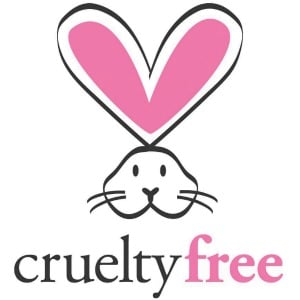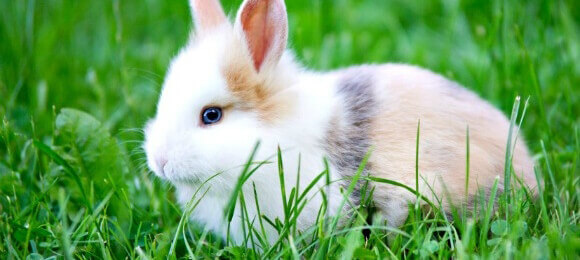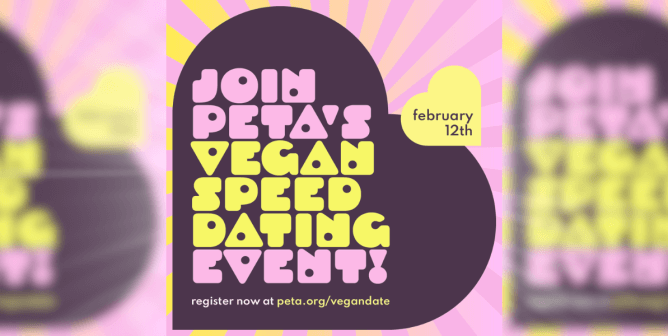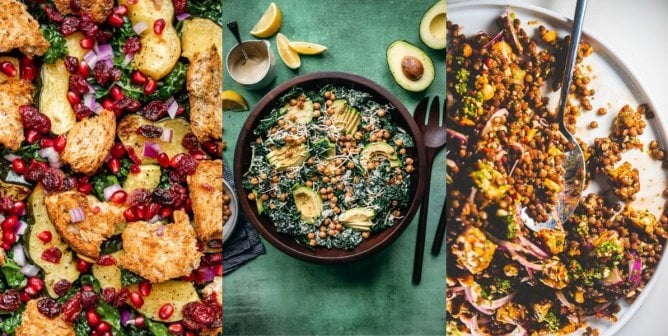The following article was written by Megan Bedard.
Stop for a minute and think about your morning routine. Did you suds up in the shower? Swipe mascara across your lashes? Rub on a bit of deodorant as you practiced your Old Spice guy imitation? All these day-to-day duties are so routine that we hardly give them any thought. But we should, because the products we buy directly impact the lives of animals around the world. In the cosmetics industry, abuse runs rampant.
Every year, thousands of cosmetics companies want to know if their new products will irritate skin, cause eye-tissue damage, or prove to be toxic before releasing them to the public. There are plenty of ways to find out without using animals, including testing products on cell and skin tissue cultures and corneas from eye banks and using computer and mathematical models. But many companies don’t choose the humane option. As a result, millions of animals are subjected to torturous procedures every year so that companies can turn a profit.
Many beauty products also contain animal ingredients, sometimes with super-complicated, technical names that you might not realize translate into animal ingredients.
The best way to stop animal-testing companies in their tracks is to shop smart. Pull out your products and answer the following questions. Then read on to find out how kind your beauty routine is.
- Adrenaline Cystine Marine Oil Sea Turtle Oil
- Alanine Dexpanthenol Milk Protein Shark Liver Oil
- Albumen Egg Protein Mink Oil Shellac
- Ambergris Elastin Monoglycerides Resinous Glaze
- Bone CharEmu Oil Musk Sodium Caseinate
- Bone Meal Estrogen Myristal Ether Sulfate Squalene
- Caprylic Acid Gelatin Myristyls Tallow
- Carmine Guanine Oleyl Alcohol Turtle Oil
- Casein Insulin Pepsin Tyrosine
- Catgut Isinglass Polypeptides Urea
- Chitosan Keratin Pristane Carbamide
- Cholesterol Lactose Propolis Uric Acid
- Choline Bitartrate Lanolin Rennet Ergocalciferol
- Civet Lard Retinol Wax
- Collagen Lipase Royal Jelly Whey
2. Does your product have a bunny face on it, or does it appear on PETA’s list of companies that DO NOT test on animals?

3. Is your product made by any of these companies?
- Aquafresh Herbal Essences Oral-b
- Arrid Ivory Pantene
- Aussie Kiehl’s Ponds
- Aveeno Listerine Purell
- ChapStick Maybelline Reach
- Clearasil Mary Kay ReNu
- Coppertone Natural Instincts Secret
- Crest Olay Skintimate
- Dove Old Spice Vidal Sassoon
If you answered “Yes” to number one …
Your product contains at least one animal ingredient. Some animal ingredients are obvious—sea turtle oil, for example, comes from sea turtles. Other ones are a little more elusive: “Albumen” comes from egg whites. “Ambergris” comes from whale intestines. “Rennet” is an enzyme from calves’ stomachs. To learn more, visit PETA’s list of animal-derived ingredients.
If you answered “Yes” to number two …
Good work! The bunny is a happy symbol that indicates that the product was not tested on animals. Do remember, however, that “not tested on animals” doesn’t mean that the product is free of animal ingredients. You still need to double check the ingredient list.
If you answered “Yes” to number three …
You’re supporting a company that tests on animals. Unfortunately, although animal testing is barbaric and archaic, many major companies still do it. To find out which companies do and don’t test, visit PETA’s database of cruelty-free companies and products.
*****
Feeling overwhelmed? You don’t have to clear out your medicine cabinet if you’ve made a few unwitting mistakes. What’s important is making a kind decision next time around. Print up PETA’s resources mentioned above and keep them handy when you shop.
Have other handy resources for living cruelty-free? Let us know in the comments!
Text VEG to 73822 to get the latest vegan lifestyle tips, recipes, and urgent action alerts texted right to your phone.
Terms for automated texts/calls from PETA: https://peta.vg/txt. Text STOP to end, HELP for more info. Msg/data rates may apply. U.S. only.







